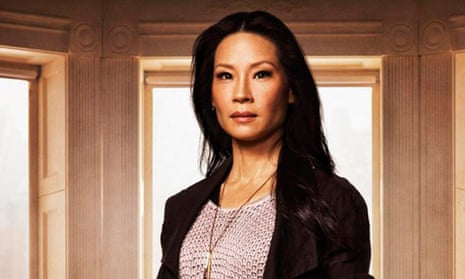Americans often measure success by the three M’s: money, Motorola, and Mercedes. Most Chinese immigrant parents, on the other hand, define success as getting straight A’s, graduating from an elite university, pursuing an advanced degree and becoming a doctor, lawyer, pharmacist or engineer.
Could this be why the children of Chinese immigrants are, on average, better educated and wealthier – with higher paying jobs – than the general US population?
Amy Chua (of Tiger Mother fame) and her husband and co-author, Jed Rubenfeld, seem to think so. In their new book, The Triple Package, they compare differences in educational qualifications, median household income and occupational status to support their claim that certain American groups – including those of Chinese, Jewish, Cuban and Nigerian descent – are more successful than others because they share certain cultural traits: a superiority complex; inferiority; impulse control.
But just because these groups have achieved “success” doesn’t mean that these traits are responsible for it, nor that the high-paying, professional job is even what Chinese Americans and other Asian Americans aspire to achieve.
In our new study of Chinese, Vietnamese and Mexican Americans in Los Angeles, sociologist Min Zhou and I found that Chinese immigrants are not only more educated than the average American – they’re also more highly educated than those they left behind. As highly educated immigrants, Chinese parents define success narrowly; more importantly, they invest their resources in achieving it.
But this narrow framing of success comes at a price: young people who don’t “make it” are made to feel like failures and under-achievers, often leading them to isolate themselves from their ethnic communities and reject their ethnic identities. These “under-achievers” told us that they “don’t feel really Chinese”, “aren’t like other Asians”, or have become “the black sheep” of their families because they haven’t met what they perceive to be the expected levels of achievement for Chinese Americans. Our big takeaway: claiming that certain groups are more successful than others because of inherent cultural traits implies that those who don’t meet these expectations have no one to blame but themselves.
Given these consequences, why do Chinese and other Asian immigrant parents frame success so narrowly?
They do so because they come from countries where education is one of the only paths for mobility. And, as non-white immigrants in the United States, Asian immigrant parents fear that their children will experience discrimination in their careers. So parents shepherd their children into conservative, high-status professions in which they may be most shielded from potential discrimination by employers, customers and clients.
Based on our interviews with the children of Chinese immigrants, we learned that their parents believe that careers in writing, acting, fashion and art are risky because these professions involve subjective evaluation, thereby making their children vulnerable to bias. By contrast, careers in medicine, engineering, law or pharmacy require higher credentials and advanced degrees, which protects their children from the usual types of discrimination.
For example, a Chinese woman we interviewed remembered her immigrant mother’s advice about majoring in math and pursuing a career in medicine instead of interior design:
In math, there’s always a right answer; one plus one always equals two. It’s not that way in the arts.
From her mother’s perspective, taking the most conservative approach was the most sure-fire path to success.
Most of the US-born Chinese adults we interviewed do not work as doctors, lawyers, pharmacists or engineers; of those who spoke to us, less than 20% even hold a professional job. However, because people are more likely to remember evidence that confirms a stereotype – and because of the tendency to group all Asians into a single racial category – we’re more likely to pay attention to Asian Americans who graduate from Ivy League universities, and work in one of these high-status professions. We are also less likely to notice Asian Americans who drop out of college, and work in low-paying, low-status jobs. And because there are enough visible examples in the public domain that confirm the stereotype of the successful Asian American doctor, lawyer or engineer, the stereotype endures, in spite of all the contradictory evidence.
There is no one-size-fits-all definition of success. While some Americans may measure success by the three M’s, there are other ways, including how different you are from your immigrant parents. And who might be the most successful immigrant group if we were to measure success this way? The children of Mexican immigrants.
But despite immigrant parents’ belief that success is guaranteed in only the most conservative, “successful” professions, young Asian Americans are finding success on their own terms – in journalism, the arts, politics and in the social sciences. Actress Lucy Liu, designer Jason Wu, chef Roy Choi, politician Gary Locke, journalist Jeff Yang – the list goes on.
That Asian Americans are increasingly departing from narrow definitions of success, choosing alternate routes, and making it on their own should give their immigrant parents confidence that broadening the definition of success doesn’t mean failure; it means uncharted new horizons.
